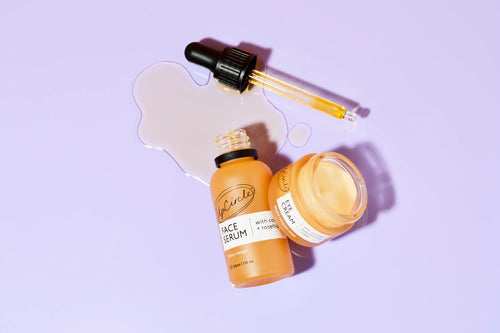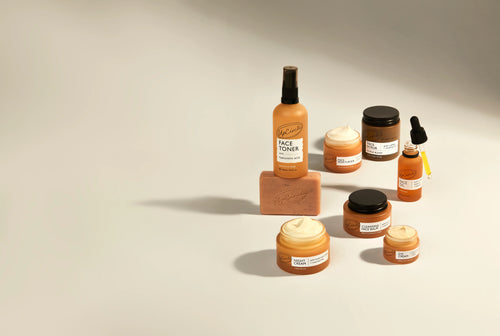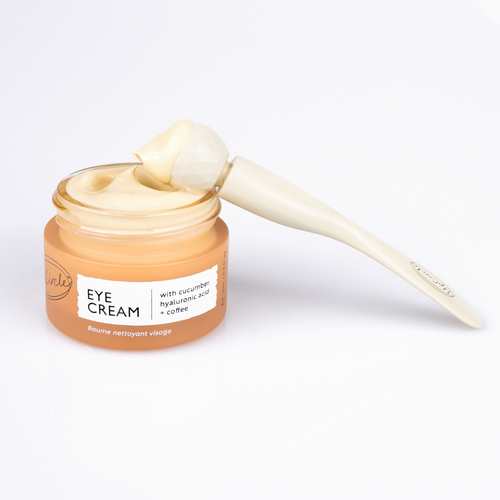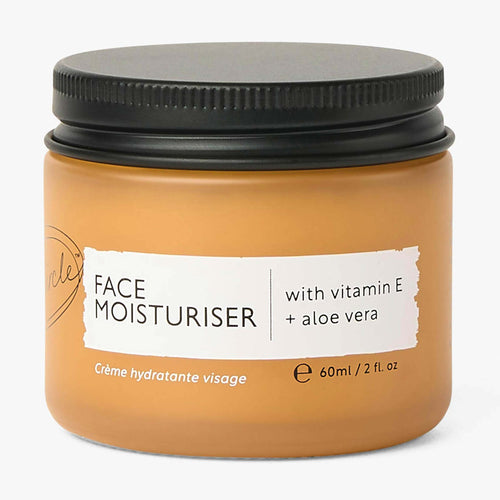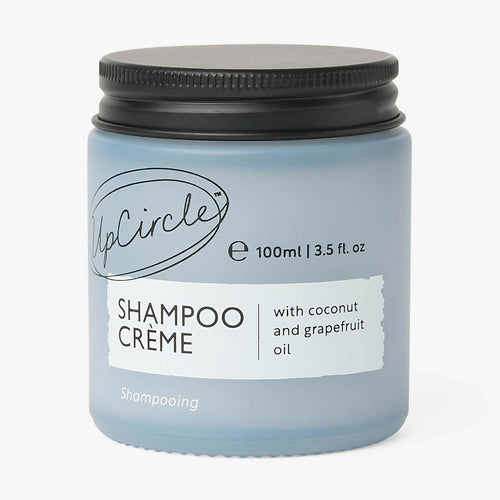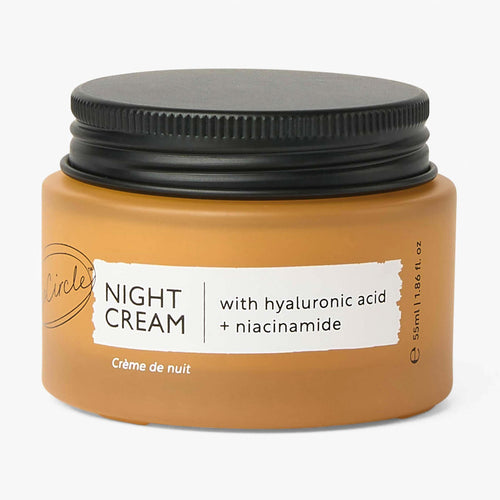Taking the time to understand your sensitive skin is key to addressing it effectively. With various different triggers and types of reactions, we know you have a lot of questions about it. Here we dive into the key info about sensitive skin, so that you feel informed and in control.
How can I tell if I have sensitive skin?
First up, ‘sensitive skin’ is quite an umbrella term. What does it mean? In a nutshell, sensitive skin is simply skin which is reactive to the world around it.
This may mean you easily flush with minimal exertion. Or a few minutes in the sun or wind leaves your skin dry and flaky. Perhaps you break out in pimples if you so much as consider a new skin product. Maybe you’re prone to rashes, rosacea or simply irritation and itches.
A large number of people can, as such, be seen to have sensitive skin. You are far from alone.
It is worth quickly explaining the difference between sensitive and reactive skin. When we talk about sensitive skin, we are generally referring to how the skin reacts to external factors, e.g. sun, wind, or skincare. Reactive skin is therefore much the same thing, and simply a way to describe that the sensitivity is shown through a reaction, e.g. redness, inflammation or breakouts.
What causes sensitive skin?
There are many different causes of sensitive skin. Some individuals will be sensitive to specific triggers, whilst others may find their skin reacts to a whole multitude of factors. To some degree, how you handle your sensitive skin will depend on what’s causing it to react.
In some cases, there may be a skin condition behind your sensitive skin, such as eczema, dermatitis or rosacea. These can be triggered by allergies, intolerances or external factors.
For some people, they don’t have a specific skin condition. However, their skin reacts more easily to stressors such as sunlight, wind exposure, cold or heat.
You may have inherited sensitive skin from a parent. Sensitive skin is also affected by age and gender. Your skin may be more or less sensitive at different times in your life, or when you are more stressed.
Let’s take a look at some sensitive skin care tips.
Skin care tips for sensitive skin
How to calm down sensitive skin
If your skin has reacted out of sensitivity, your first step is to calm down the reaction. Usually, your primary goal is to reduce any redness. This can be a delicate process, as making a mistake can have the opposite effect. For example, take care not to over-wash your face. Take small, gentle steps to calm things down.
Start with a cleanser that will help to calm the redness. The organic cinnamon and ginger chai soap bar is ideal. With all-natural ingredients, it also contains pink clay which is fantastic for reducing redness. You should then use a gentle moisturiser, as well as drink plenty of water, to help with hydration which will both soothe redness and tackle dryness.
What are good skincare products for sensitive skin?
With your skin soothed, it’s important to consider what skincare products you use, going forwards, that will be kind and sensitive to your skin.
An excellent rule of thumb is to opt for all-natural ingredients. Our skin is generally happier when we stick to natural skincare. Let’s take a look at each element of your skincare routine.
What is a good facial cleanser for sensitive skin?
As we mentioned, an excellent cleanser for sensitive skin is the organic cinnamon and ginger chai soap bar. However, our Cleansing Face Milk is another gentle alternative to a soap bar for those who prefer a milky formula. It is formulated with upcycled oat powder which helps repairs and restores the skin's moisture barrier leaving the skin buttery soft. Our cleansing face balm is also particularly suited to gently cleanse and hydrate sensitive skin to remove make up and impurities. Made using apricot stones, it is naturally rich in vitamin E which is a fabulous antioxidant for sensitive skin.
What is a good face scrub for sensitive skin?
Those with sensitive skin may be tempted to avoid exfoliation. Whilst you want to avoid aggressive exfoliation, gentle exfoliation can actually help. It will remove dead skin cells which cause and exacerbate dry skin. It also removes dirt and grime which can clog pores causing outbreaks. The coffee face scrub floral blend is ideal for sensitive skin as it contains camomile essential oil, famed for its anti-inflammatory properties. Make sure you go gently, avoiding the delicate eye area, and always use the scrub on wet skin.
What is a good moisturiser for sensitive skin?
Lastly, always use a good moisturiser if your skin is sensitive. Keeping your skin hydrated helps to arm it against the things which cause redness, dryness and irritation. This vegan moisturiser is rich in vitamin E, as well as soothing aloe vera and hydrating cocoa butter.
Are all natural skincare ingredients good for sensitive skin?
Sure enough, opting for natural skincare products is the wisest choice. Generally speaking, sensitive skin is less likely to react to all natural products, compared to bottles of chemicals which can irritate or aggravate the skin.
Hyaluronic acid is something we find naturally in our bodies, where lubrication is needed, such as in your eyes and joints. Hyaluronic acid can be good for sensitive skin because it helps to protect it and keep it smooth. Hyaluronic acid is found naturally in various products, including citrus fruits, such as in the blood oranges in our moisturiser. We’ve also included it in our upcoming eye cream, so keep an eye out (excuse the pun) for that in the next couple of months.
One natural ingredient that you need to take a bit of extra care with using if you have sensitive skin is tea tree oil.
Can you use tea tree oil on sensitive skin?
Tea tree oil is favoured for its natural anti-bacterial properties making it popular for tackling spots. This is true and it can be useful. However, too much tea tree oil is harsh and can cause redness and dryness. Some people also react to tea tree oil.
It’s best to dilute tea tree oil and find the balance which is best for you. Then you can mix this into your regular moisturiser or serum, and be confident that it won’t cause a reaction.
What are the ingredients to avoid for sensitive acne prone skin?
You do need to be careful with some natural products as they can still be harsh and cause reactions in those with sensitive skin. For example, some strong natural fragrances and alcohol are likely to cause irritation in sensitive skin.
Also, avoid artificial ingredients. For example, sulphate, which causes the lather in many mainstream skincare products, is known for particularly exacerbating sensitive skin.
Do you have any more questions about sensitive skin and the best products for you? Feel free to use our chat function, found on the bottom left of our site. You can also leave a comment on this post and we’ll get back to you! Our skincare experts are ready to help. In the meantime, check out our Sensitive Skin Soother Bundle.

